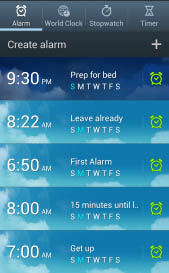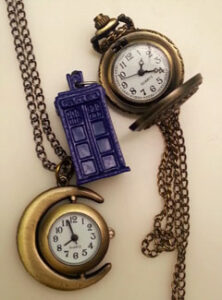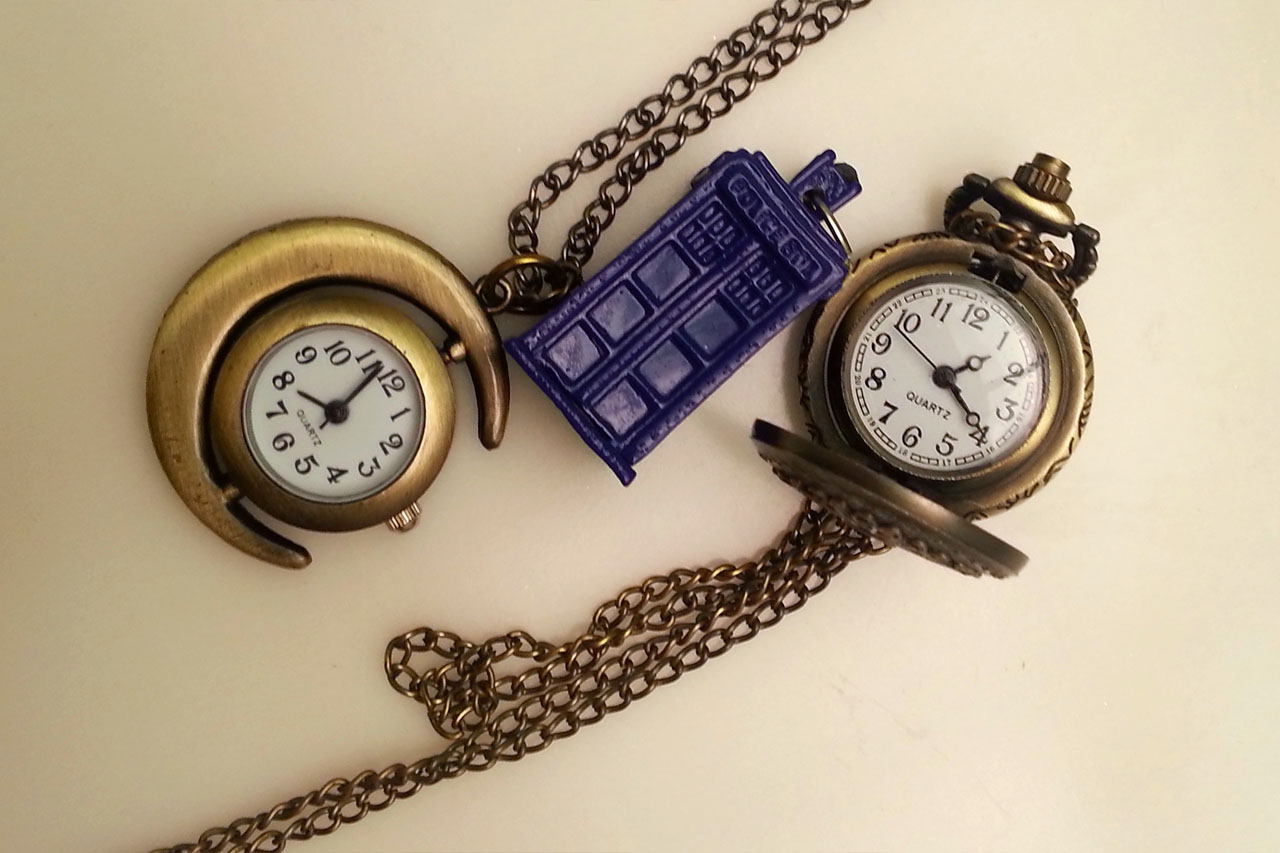The majority of my life I have been a very punctual person. It somehow came natural to me. I noticed how others sometimes ran late to social events, work, and with deadlines and I looked at the difference in actions between what they did and what I did.
Though I appear to master time well, it’s only because of the techniques I use that keep my tasks in order.
Habits of Punctual People
The main habit that keeps me in check is setting alarms. I personally like to use my smartphone to set alarms because I can set and name several at a time, but other alarms are also effective. Most people set an alarm in the morning to get up, but alarms can be used for many other tasks:
- Cooking – It’s easy to pop something in the oven, but less easy to remember to pull it out in time. My meals would rarely survive without the use of a timer/alarm.
- Remembering when to go to bed – It’s quite easy to get absorbed into an interesting task, especially if it is one you love. You can really get sucked in and lose your sense of time, but if you set an alarm for when you should move on to the next task, such as eating/sleeping, it can greatly help.

How to be a time lord: Set alarms - Remembering when to eat – On non-work days, I know I have gotten lost in miscellaneous
activities and have forgotten to eat until I was absolutely starving. This is not good on the body and can often lead to overeating. It’s best to aim for a breakfast, lunch, and dinner time and set an alarm if you find remembering when to eat as an issue. You don’t have to eat if you are truly not hungry, but at least give mealtimes awareness so you don’t realize you are starving after it’s too late. Your blood sugar levels can also take a dip during these times. Many don’t realize when they are actually hungry because they are putting their awareness on other tasks and not their body. I find that at least setting an alarm helps keep mealtime more regular, along with energy levels.
Make a Buffer in Time
There are countless times when you will need to be somewhere at a certain time. It’s always better to be there a little early than a little late. Setting an alarm for you to leave a little earlier can help because you never know what sort of delay may be along the way. As a rule of thumb, I like to plan an extra 25% on the drive time just in case. For example, a normal 15 minute drive may be delayed a few minutes. An hour long drive can be delayed even 15. It’s always good to give yourself some extra time. Therefore if my drive time is usually 30 minutes, I plan to leave an extra 7-8 minutes early, which is about a quarter of the time of the usual trip. I have always found that this magic number works for me and has saved me time and time again.
Know How Much Time Your Tasks Take

Another key in being timely is knowing how long it takes you to do the tasks in between point A to B. A good example is your morning routine. Most people have a good sense of how long it takes them to get ready in the morning, but have you ever timed yourself? I actually do. I don’t record any times, but I make a conscious note of how long each task takes me by glancing at the clock before and after each task. This greatly improves my planning and time management. Sometimes it helps to have a watch close by to glance at from time to time. I absolutely love necklace clocks.
Another good planning technique to use is pre-planning your drive time. Lets say you are going somewhere new and you don’t know how long it will take. What I like to do is use Google maps to map out and estimate the time for me. Usually, the time that Google maps gives me is inaccurate, but it’s a great guess based on the distance driven. I often just add time onto that guess that Google gives by 50%. If it says it will take an hour to get somewhere, I make sure I leave an hour and a half early at least. Sometimes I have found that even this isn’t enough time. You never know because you could get lost, not find parking, not have cash for parking or other costs and need to stop at the bank. The possibilities are endless, but if you at least give yourself a little bit of a buffer, you won’t have as many incidents of lateness. It also will decrease you stress levels while driving because you won’t be in as much of a rush. With as many inpatient people there are out there, one less person with road rage can greatly add peace to the road. Sometimes it just takes one person to push someone over the edge.
Keep a Schedule
I have always loved keeping a planner, but even just keeping a calendar or other personal organizer can help. Sometimes it’s hard to find the time in the first place for planning ahead and keeping your appointments. I find that you can usually find the time for everything you need to do if you at least plan things on a week by week basis. You can still make time for everything you love and also stick to your schedule. (More here)
Other Tips to Save Time:
- Streamline the process – get everything ready for the next day so you don’t have to worry about it when you wake up.
- Simplify – simplify your routine and stick to basics. This can save both time and money.
- Do the most important tasks first – by prioritizing, you take care of what most needs to be done first, just in case something comes up and you have less time available than planned. I have found this has saved me time and time again.
- Have a plan B – ever woke up suddenly and found that you slept through your alarm or your phone died so the alarm never even went off? Now you have less than half the time to get ready than you usually would. What do you do? For me on these rare days, I throw my hair up into a no mess hairdo instead of spending time on it, I simplify any makeup I decide to wear that day, I grab a banana to go instead of a full meal, and I throw my clothes on and I’m out the door. Random things happens so it’s always good to have a “what if” plan.
- Clear out distractions – it’s easy to decide you will quickly check your texts or email, but even easier to spend longer doing those things than intended. If you are on a schedule, plan those things for later or set an alarm to prevent yourself from taking too long.
- Keep a checklist – keeping a to-do list is a must for me. I find that it helps me remember things I am sure I would have forgotten if I hadn’t written them down.
- You have to want to be on time – if you don’t make it a priority to be on time, it simply won’t happen. Some people prioritize only work as an event to be on time for while arriving to their other appointments late. Below are a few reasons why you may want to be on time.
Reasons to Be Timely
- It makes you look good and “on top of things” to those you are being on time for
- It shows you are reliable and worthy of trust
- It helps your attitude because it empowers you by showing you that you have control of your life
- It helps lessen stresses that are caused by being in a rush and the worries that come along with that
- It can help prevent car accidents (because you won’t need to be driving in a rush or speeding)
- If you make it somewhere early, at least you have some free time to check your texts, read, schedule, or even meditate.
I am under the impression that we have the choice to create ourselves into whatever we want. If you want to be a person who is on time and feels in control of their life, you will. If you don’t put forth the effort to become this sort of person, you won’t. But it’s a choice you can make, and you can succeed. If you find that this information helps, great. Use it and remember it. Many times we come across wonderful and helpful information, but we don’t use it to our advantage. We get distracted, absorbed in other tasks, etc. So, I challenge you to make a plan and to create the life you want to live. You can better your life. Every action counts.
I hope you have found this useful in some way. If you liked this article, you may like another article on this site: How To Make Time for Everything You Love
It also has free downloads of printable weekly schedules that may help you. Hope you enjoy!



